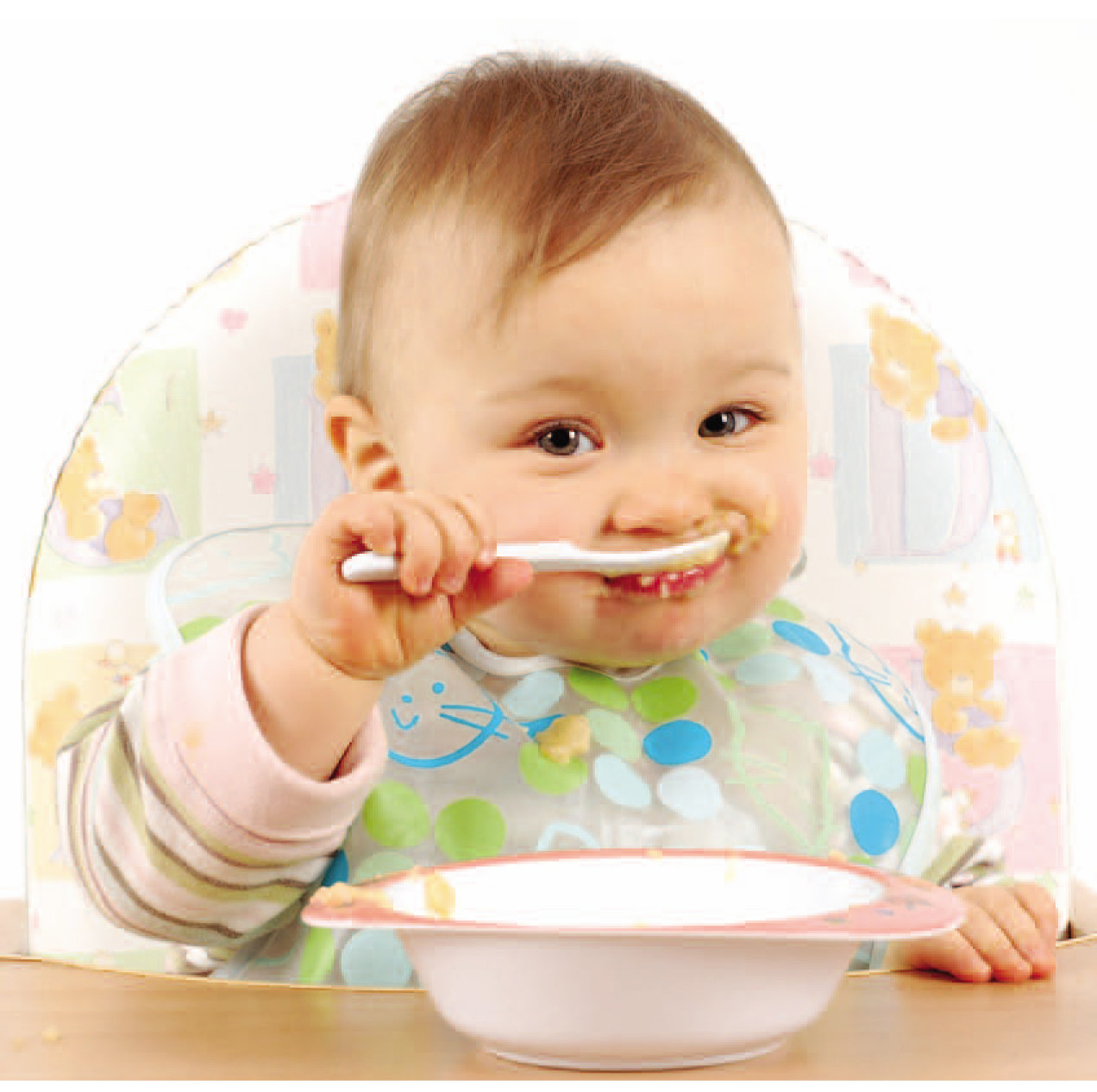|
 Since birth, your baby has been growing on breast milk. At six months old, breast milk is still the most important food but the time has come to add solid foods. Extra iron is needed at six months. Solid foods provide a variety of nutrients, flavours, and textures for your baby. Since birth, your baby has been growing on breast milk. At six months old, breast milk is still the most important food but the time has come to add solid foods. Extra iron is needed at six months. Solid foods provide a variety of nutrients, flavours, and textures for your baby.
How do I tell if my baby is ready for solids?
Your baby is ready to start eating solids when she:
- is six months old;
- holds her head up;
- sits up in a high chair;
- opens her mouth wide when you offer food on a spoon;
- turns her face away if she doesn't want the food;
- closes her lips over the spoon;
- keeps food in her mouth and swallows it instead of pushing it out.
Make sure your baby shows all of these signs of readiness before you start solid foods.
At first your baby may not accept new foods. If she shows you that she does not like the food by closing her mouth or turning her head away, stop feeding her that food. Try it again another day. Keep feeding time pleasant. If your baby feels pressured to eat, she may not want to try other new foods. Each baby is different. Try not to compare your baby to other babies. Follow your baby's signs of readiness for food. Talk to your health care provider to help you decide if your baby is ready. Give solid food after your baby has had breast milk. Continue to breastfeed throughout the day as your baby needs it. Start a new food when your baby is happy and hungry. Start new foods in the morning or at lunchtime. Include him at family mealtimes. Sit your baby up straight. It is safest to sit your baby in a high chair. Do up the seat belt to help keep your baby safe. Never leave your baby alone. Keep mealtimes pleasant. Never force your baby to eat.
How should I start my baby on a new food?
Put a small amount of food on the tip of a small spoon. Hold the spoon so your baby can see it. Then put some food on his lips. Put food in his mouth only if he opens it. If your baby does not swallow the food, he may not be ready for solid food yet. Wait a few days and try again. If your baby does not like a new food at first, try it again another day. He may need to try a new food many times before he likes it. Gradually give your baby more food. Let your baby guide you. Your baby will tell you he has had enough to eat when he turns his head away or keeps his mouth shut.
How do I protect my baby from allergies?
Continue to breastfeed. Breastmilk helps protect your baby from allergies. Start with single foods, not mixed. If your baby shows signs of allergy, this makes it easier to know which food is causing the problem. Give the same food for three to five days before you try a new food. Signs of food allergy may take up to five days to appear. Signs of allergy are rash, vomiting, diarrhea, or breathing problems. Stop feeding the food if you think it causes any of these symptoms. Talk to your doctor. Call 911 if your baby is having trouble breathing.
Our Adverts: CRM Software keep your customers close!
|